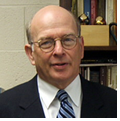Medford Making Consistent Progress on MCAS
 School Superintendent Roy Belson, pictured at left, said Medford has made steady progress over the eleven years the MCAS exam has been administered.
School Superintendent Roy Belson, pictured at left, said Medford has made steady progress over the eleven years the MCAS exam has been administered.
This is the first in several stories examining Medford’s MCAS scores and will focus on the high school, as the exam is a graduation requirement.
– Allison Goldsberry
Medford has begun analyzing its MCAS scores, and one thing is clear- students have made consistent progress on the exam over the eleven years it has been administered, according to School Superintendent Roy Belson.
“We do better than communities of comparable demographics and we’ve consistently improved over eleven years,” said Belson.
According to Belson, some of those comparable communities include Malden, Cambridge, Peabody, and Revere.
The MCAS exam started out as a requirement for high school graduation over a decade ago and now has expanded to include testing in grade 3 through grade 8 as well as grade 10. Students are also being tested on more than Math and English, as Science and History portions have been added to the exam, resulting in appropriate curriculum tweaks in Medford to better prepare students.
For example, Introductory Physics was added for freshmen two years ago and the district saw a 12% decrease in the failure rate and a 19% increase in students scoring in the top two proficiency levels for that exam. Eighty-eight percent of students in the Class of 2010 (those that need to pass the MCAS to graduate) have met the new Science MCAS graduation requirement.
Overall, high school students performed well on the exam, with the failure rate down significantly and a dramatic increase in students scoring in the top two proficiency levels. For example, in 1998, only 30% of MHS students scored at the Advanced or Proficient levels on the English Language Arts exam, compared to 79% for 2008, which is 5% better than the state average. For Math, only 16% of MHS students scored at those levels in 1998 compared to 71% in 2008. Seventy-two percent of students statewide scored at the two highest levels.
Belson said the challenges Medford faces in educating a diverse community of students are different than many communities, including some of its closest neighbors such as Arlington and Winchester, and people should not be too quick to try to compare results.
“I’d rather talk about how we improved year to year,” said Belson.
Belson said administration officials and he are looking at how groups of students do from year to year on the exam, as different groups of students take the exam each year. He also said students that are in Medford for several years will see a higher success rate, as they have had time to be exposed to the curriculum and prepare for the exam.
“Our general consensus is youngsters who stay with us for a period of three to four years progress,” said Belson.
According to Math and Science Director Maureen Chapman-Fahey, 25% of high school students taking the exam had not been with Medford for the previous two years.
Special Education and English Language Learner (ELL) students have the toughest time in passing the exam, according to Assistant School Superintendent Beverly Nelson. She said Medford has $50,000 in grant money, $12,000 of which is exclusively dedicated to ELL students, to help students who did not pass the exam on the first try.
Belson called the MCAS an “imperfect instrument” that is only one part of a student’s education, but that does not mean Medford is not working hard to improve its scores.
“We should not try to shy away from accountability or make excuses for our performance,” said Belson.